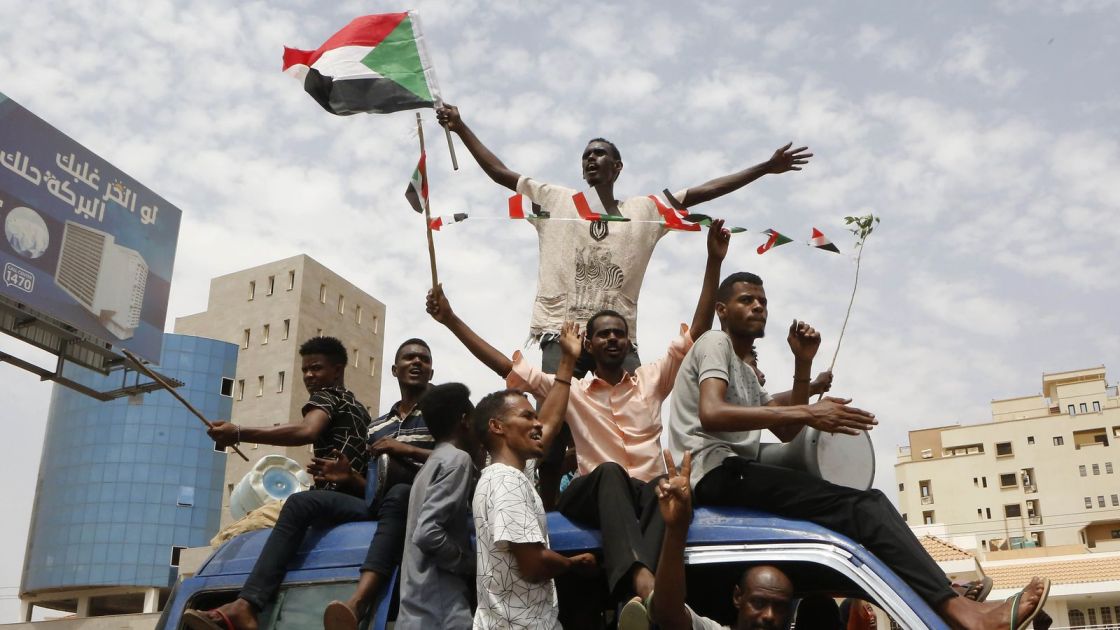- Editorials
- Posted
Kassioun Editorial 1119: Lessons from Sudan
Sudan is once again drowning in a bloody internal conflict that has nothing to do with the interests of the Sudanese people. Rather, the conflict has to do with the interests of the influential few who are in control and are nothing more than a modified continuation of the previous regime. Naturally, the current conflict is linked to the interests of the interfering external powers, at least some of which seek to deepen the conflict and make it more vicious.
The painful and harsh situation through which Sudan is going can teach us all, including in Syria, crucial lessons:
First: The attempt to focus on “military rule” (versus “civilian rule”) as the root and core of the crisis, is nothing more than obfuscation and deception about the essence of the issue. Before al-Burhan-Hemedti, Hamdok – a “civilian” – was the ruler and the high representative of the International Monetary Fund and the World Bank in Sudan, and the crisis was the same, albeit in a different form. That is, the essence of the matter is the nature of the socio-economic and political program being implemented in the country, which has not witnessed any significant changes over many decades, and until now. It is the neoliberal program based on the plundering of Sudan and its enormous wealth, as well as the destruction of its production for the benefit of the influential few, and through them the western centers.
Second: Sudanese “military” and “civilian” sides got entangled in normalization with the Zionist entity, hoping that the price of normalization would be the lifting of Western sanctions on Sudan and an improvement of its economic conditions, believing that the Americans and the Zionists would protect the normalizers from the anger of the Sudanese people and ensure they remain and continue ruling. Reality has proven, and is now proving more clearly, that normalization with the Zionist entity is the door to hell that regimes open to their people and themselves – economically, socially, security, and politically. This is what all the normalizers should realize, and all those who are thinking about normalization.
Third: The current crisis in Sudan is more dangerous and deeper than it was when al-Bashir stepped down/was removed, to the extent that it threatens not only of a bloody civil war, but also a new partition. This shows that the processes of “changing hats”, to which those in control resorted to avoid the decision-making events for radical change, lead to only one thing: temporary and short sedation of the crisis, which continues to swell and deepen, only to explode later with greater intensity. This means that all the “new” regimes that have emerged over the past decade, which were not really new but rather “old and fake”, along with the countries with which they are connected are still threatened by upcoming explosions that are more dangerous than anything that came previously.
Fourth: The American-“Israeli” sabotage power in our region has not yet run out, and there is no way to completely close the door to except by fortifying the interior by achieving people’s approval and respecting their dignity. In tangible terms, this would be through radical changes that redistribute wealth internally, advance the economy on productive and developmental bases, and benefit from the new international balances.
Fifth: Perhaps the primary target, after Sudan, of what is happening is Egypt, which, even if it does not get involved in direct military intervention, the continuation of the conflict on its borders will place it in a state of attrition that will deepen its internal crises and lead it towards extremely dangerous situations. This means that closing the door to creative chaos throughout our region will not be complete without closing all loopholes and resolving all crises, which requires deeper cooperation among forces with interest in stability, similarly to the Astana structure. This reinforces the idea that putting an end to the Syrian crisis requires encircling the crisis in all its aspects by deepening cooperation and integration among the Astana group, China, and the main Arab countries led by Saudi Arabia, in parallel with blocking all Zionist tricks, whether they come from Western or Arab sides.
Despite the bleakness of the current Sudanese scene, the clear refusal of the Sudanese people to engage in bloodshed, along with the serious work by Russia, China, and key regional countries to contain the situation against the American-Zionist will, allows us to predict that the current crisis will not last long. However, it does not refute that ending it and preventing its subsequent explosion goes through one irreplaceable path: a political solution and radical change in the interest of the Sudanese people.


